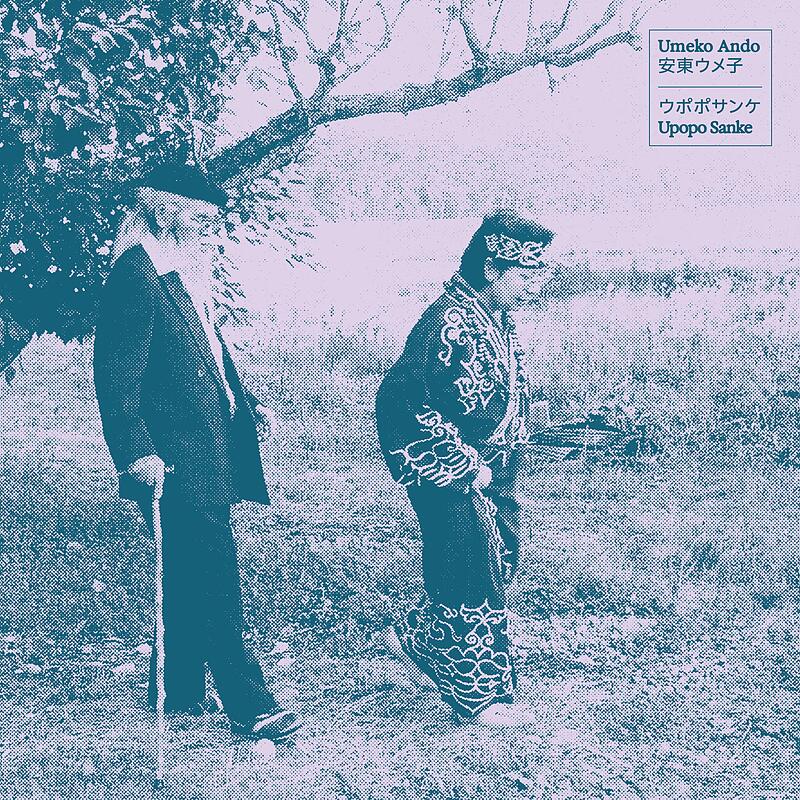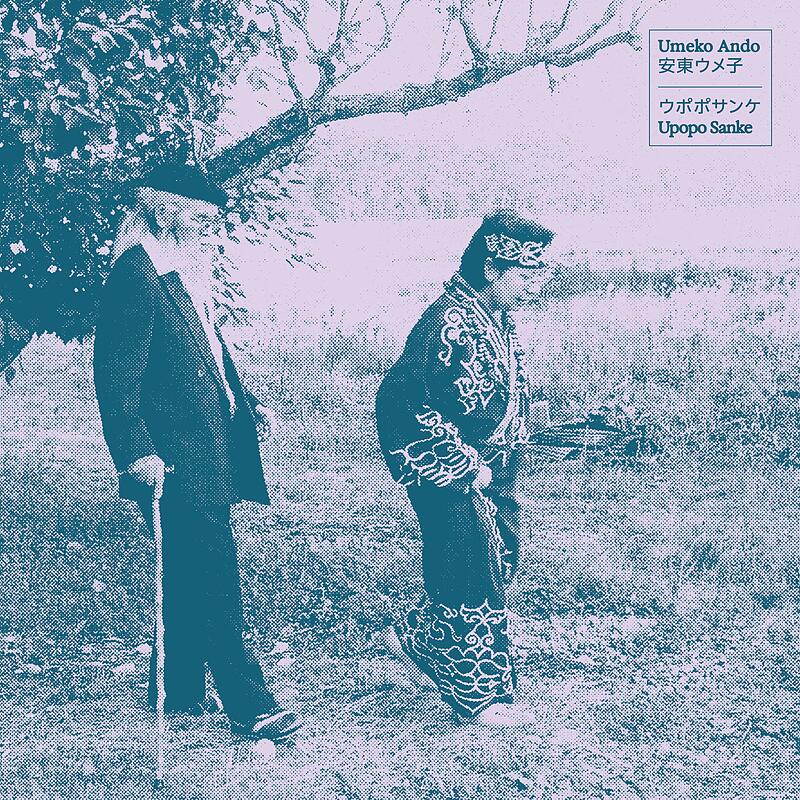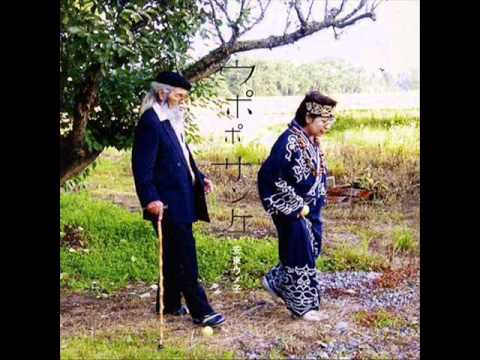“Upopo Sanke“ means “Let's sing a song" in the Ainu language. Umeko Ando (1932-2004) was one of the best-known artists of the Ainu, an indigenous, long-suppressed community in northern Japan. She sings their traditional songs together with Oki Kano on the Tonkori harp, who also recorded the album. The two are supported by members of the female vocal group Marewrew as well as Ainu percussionists, a string player and a male singer who provides rhythmic shouts and also throat singing. The call-and-response structure of many of the songs is pe …
Read More
“Upopo Sanke“ means “Let's sing a song" in the Ainu language. Umeko Ando (1932-2004) was one of the best-known artists of the Ainu, an indigenous, long-suppressed community in northern Japan. She sings their traditional songs together with Oki Kano on the Tonkori harp, who also recorded the album. The two are supported by members of the female vocal group Marewrew as well as Ainu percussionists, a string player and a male singer who provides rhythmic shouts and also throat singing. The call-and-response structure of many of the songs is performed with a mantric, hypnotic quality in a vocal style that is perhaps best described as elastic, relaxed and breathing. The lyrics praise the lush nature of the islands. They mention the deity Kamuy, who can appear in the form of animals such as bears or swordfish, and the singers repeatedly ask the audience to dance. Listening to this music can be a meditative experience. There seems to be a gentle smile in every note and syllable. This music softly hits the heart.
“Upopo Sanke“ was recorded on a farm in Tokachi in the summer of 2003. We hear dogs barking, a distant thunderstorm and voices imitating animals. The liner notes that accompany the 2LP release gather the anecdotal memories of Umeko Ando and Oki Kano about the stories of the 14 songs.
Oki Kano is a musical ambassador of the Ainu culture who tours worldwide with his Oki Dub Ainu Band and also gives solo concerts, always playing the Tonkori, the five-stringed Ainu harp.
The Ainu have suffered from the oppression of their culture and language by Japan, especially since the 18th and 19th centuries. Only recently, in 2008, were the Ainu officially recognized again as an indigenous people culturally independent of Japan. As a result of the marginalization, there are now only a few hundred native speakers of the Ainu language left, making it a particularly worthy object of preservation. This music would not exist if the Ainu had not maintained their culture in remote and secret communities against Japanese hegemony. Thanks to Oki Kano, Umeko Ando's interpretation of Ainu music has been recorded in great detail from within the community. "Upopo Sanke" is a treasure of the Ainu heritage.
"Upopo Sanke" was mixed again in part by Oki Kano before being mastered and cut to vinyl by Kassian Troyer. The 2LP plays on 45rpm and it sounds fantastic.
This album was the second album by Umeko Ando, the follow-up to "Ihunke", originally recorded in 2000 and also re-released in 2018 by Pingipung together with Oki Kano. The vinyl editions of "Ihunke" and also the 7’' single "Iuta Upopo" including an M.RUX remix have long been sold out. They will be made available again in the course of the release of "Upopo Sanke".
Read Less



